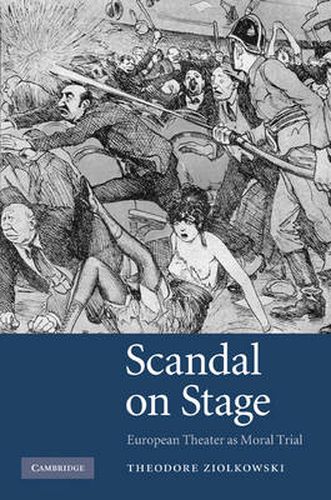Readings Newsletter
Become a Readings Member to make your shopping experience even easier.
Sign in or sign up for free!
You’re not far away from qualifying for FREE standard shipping within Australia
You’ve qualified for FREE standard shipping within Australia
The cart is loading…






New plays and operas have often tried to upset the status quo or disturb the assumptions of theatre audiences. Yet, as this study explores, the reactions of the audience or of the authorities are often more extreme than the creators had envisaged, to include outrage, riots, protests or censorship. Scandal on Stage looks at ten famous theater scandals of the past two centuries in Germany and France as symptoms of contemporary social, political, ethical, and aesthetic upheavals. The writers and composers concerned, including Schiller, Stravinsky, Strauss, Brecht and Weil, portrayed new artistic and ideological ideas that came into conflict with the expectations of their audiences. In a comparative perspective, Theodore Ziolkowski shows how theatrical scandals reflect or challenge cultural and ethical assumptions and asks whether theatre can still be, as Schiller wrote, a moral institution: one that successfully makes its audience think differently about social, political and ethical questions.
$9.00 standard shipping within Australia
FREE standard shipping within Australia for orders over $100.00
Express & International shipping calculated at checkout
New plays and operas have often tried to upset the status quo or disturb the assumptions of theatre audiences. Yet, as this study explores, the reactions of the audience or of the authorities are often more extreme than the creators had envisaged, to include outrage, riots, protests or censorship. Scandal on Stage looks at ten famous theater scandals of the past two centuries in Germany and France as symptoms of contemporary social, political, ethical, and aesthetic upheavals. The writers and composers concerned, including Schiller, Stravinsky, Strauss, Brecht and Weil, portrayed new artistic and ideological ideas that came into conflict with the expectations of their audiences. In a comparative perspective, Theodore Ziolkowski shows how theatrical scandals reflect or challenge cultural and ethical assumptions and asks whether theatre can still be, as Schiller wrote, a moral institution: one that successfully makes its audience think differently about social, political and ethical questions.